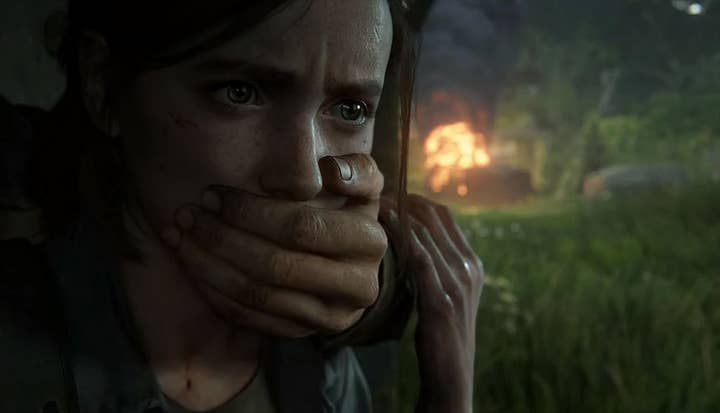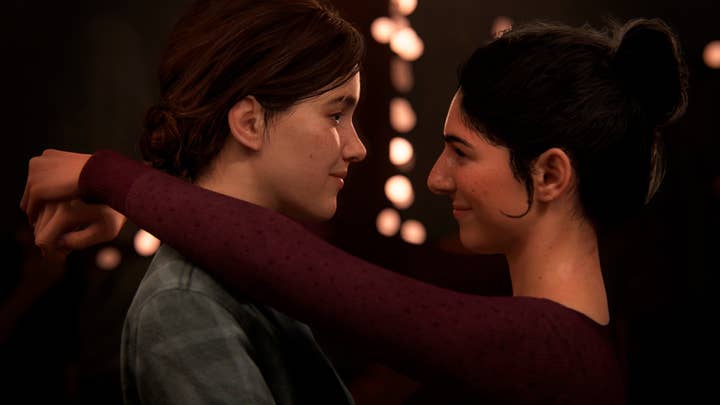Gaming's lost boys embrace their inner censor | Opinion
The Last of Us 2 attracts reactionary fury for depicting diversity -- and the erstwhile free speech warriors now find themselves cheering for government censorship
The news that The Last of Us 2 has been banned in some conservative Middle Eastern countries shouldn't really come as a surprise to anyone, and certainly doesn't seem to have been surprising to Sony -- whose dry official comment that the game's unavailability on the local PlayStation Store in those regions means it has been "banned by the competent authorities" was the corporate equivalent of a shrug.
The Last of Us has never been a game remotely shy about its socio-political stances, and the shift of player character in the sequel brings the LGBT-related aspects of that particularly to the fore. Both Sony and Naughty Dog will have known and understood from the outset that those decisions would invite censorious reactions in certain regions, and decided open-eyed that this was an acceptable cost for allowing the creative team to tell the story they wanted without interference.
What might have come as a little more of a surprise -- wearily obvious though it is in hindsight -- is the extent to which the game has also suddenly become a major focus for reactionary conservatives more broadly. It should go without saying that if losing sales in a couple of large Middle Eastern markets was considered an acceptable sacrifice for creative freedom, the disapproval of a small but noisy minority of extremely online culture warriors isn't likely to summon even the tiniest of shrugs from Sony. Yet it's still worth stopping for a moment to admire the sheer brass-necked hypocrisy of a group who normally scream about censorship at the first sign of a developer changing a female character's costume suddenly applauding the actual, outright banning of an entire game by a government censor.
"TLOU2 commits some clearly unforgivable cardinal sins, such as 'you don't play as a grizzled looking man any more'"
The reason that the reactionaries have turned their attention to The Last of Us 2 is a big old mess of internet drama, as usual; an unfortunate and possibly malicious leak of information about the game is part of it, but it's hard to escape the sense that The Last of Us -- a series whose progressive themes and ideas have been worn openly on its sleeve, from a developer and publisher that have been pretty refreshingly straightforward in their support for diversity -- was just something they were itching for a reason to hate.
The sequel, in particular, commits some clearly unforgivable cardinal sins, such as "you don't play as a grizzled looking man any more", "the main character is a lesbian woman" -- if they've only just noticed this now, of course, you'd have to wonder how many of the most vocal detractors have actually engaged with the series at all prior to jumping on this bandwagon -- and "there's a female character who isn't conventionally attractive -- so we've arbitrarily decided she's a trans woman."
Nobody who has been following these kinds of online tempests in recent years will be surprised to find that there are hefty doses of homophobia, transphobia, and misogyny involved, but perhaps the most defining feature here is the sheer sense of entitlement. We've come a long way since the days of a shrill minority refusing to accept that they merely disliked the ending of Mass Effect 3 -- a perfectly reasonable stance, since I found it pretty unsatisfactory narratively too -- but rather insisting that their dislike demanded that Bioware remake it in a way that satisfied them. Now, it seems, we've got people who feel entitled to make demands for gigantic changes to a game that hasn't even been released yet, and rejoice in seeing it being censored by oppressive regimes because it has made the unimaginable decision to include characters they can't masturbate to.
"The real goal is to send a message that the kind of creative decisions made here will be punished"
While the core set of individuals involved in whipping up this kind of controversy and propagating it around the internet is generally extremely small, and their ability to directly impact the commercial performance of a game is pretty much non-existent -- The Last of Us sold 20 million copies and its sequel will do just fine, I'm sure -- it would be wrong to think that the lack of commercial damage means this isn't harmful. We should be far less concerned with Sony's ability to monetise its enormously successful franchise than with the impact that the vitriol and spite can have on the lives of developers and others involved with the game, and the chilling effect that a torrent of online anger can have on other creators' freedom to make the games they want without fear of provoking a backlash that targets them personally.
That's the point though, isn't it? This kind of outrage isn't really designed to "hurt" The Last of Us 2, or Sony, or even Naughty Dog; the real goal is to send a message that the kind of creative decisions made here -- diversity, a story exploring something other than a cookie-cutter hero's journey, characters designed for something other than one-handed appreciation -- will be punished.

The bitterness being pumped into website comments, spittle-flecked YouTube videos and social media posts is meant to be a warning. They can't hurt a juggernaut title like The Last of Us 2 -- not really -- but they can make creators and publishers double-guess their own decisions and ask how much they're willing to run this abusive gauntlet. It's a protection racket; every turn of the screw is meant to tighten the cage around creative freedom, to roughly shove developers from the largest studio to the smallest indie down a path of least resistance -- which might be dull, but at least won't get chuds on message boards trying to track down your home address and your family members.
"That path of least resistance -- the gaming medium that these people claim to want -- would be utterly insipid and bland"
That path of least resistance -- the gaming medium that these people claim to want -- would be utterly insipid and bland. Their comfort zone for story, art and characterisation is about the size of a postage stamp; an endless barren wasteland of grizzled yet virile men who speak in emotionless grunts and mostly communicate through violence, Barbie-Doll women who are sassy and sexually available, and occasional racial stereotype NPCs for comedy value.
The reason something like The Last of Us 2 actually makes them so furious -- beyond any reasoned critique of the game, some of which is undoubtedly deserved, as it would be for any game -- is that it's a big-budget AAA title whose characterisation dares to stick its toe into waters that are usually the sole preserve of indie game makers. Reactionaries have been dumping on indie game makers for exploring the existence of other kinds of human for years, but this is an intrusion from that upsetting, confusing creative realm into the usually safe and dull world of AAA. Naughty Dog has had the temerity to go and do things that reactionaries have spent countless Steam review-bombs and social media campaigns clearly indicating their dislike for. The protection racket isn't what it used to be, apparently.
Of course, it's not that anyone is actually taking away the types of game and character which these status quo warriors profess to love, so much that they can't help attacking any divergence from the norm. Even in Sony's line-up alone, we're hardly short of grizzled-but-virile men -- they're getting a little more interesting and nuanced, for sure, even if watching Kratos try to relate to humans using something other than a spine-crunching deathblow felt a bit like watching a bulldog try to ice skate -- and god knows plenty of games still serve up Barbie-like sexually available women.
None of this has gone away, but in recent years developers have found that they can explore other themes and other characters too, and that audiences generally respond very positively to characters that speak to the diversity of the real world around us, rather than falling back on the same tired set of cardboard cut-outs over and over again. The reason these ideas are making the jump from indie to AAA isn't just because creators want to explore these themes -- though they absolutely do -- it's because audiences also enjoy them.
Trying to stop this process is like shouting at the tide not to come in. Perhaps once you've found yourself making common cause with oppressive regimes in the Middle East in your campaign to stop video games from being a little more diverse, it's time to throw in the towel.

